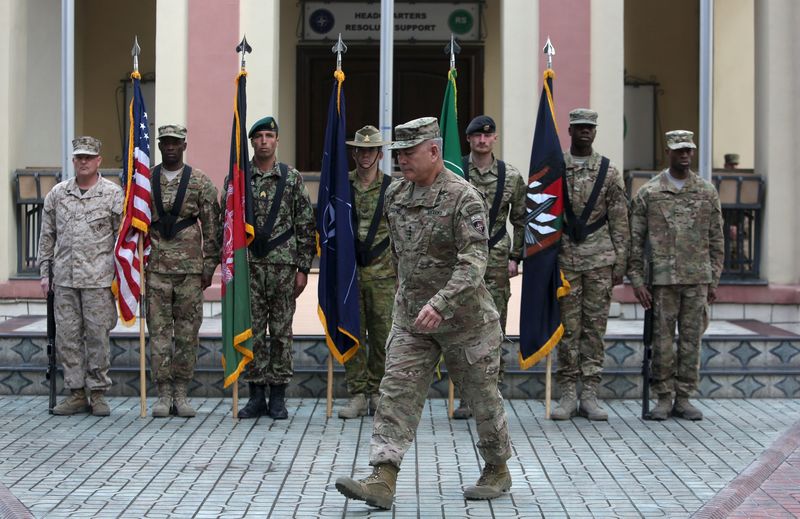By Phil Stewart
WASHINGTON (Reuters) - The U.S. general who until last week commanded the NATO-led coalition in Afghanistan said on Friday he recommended broader scope for U.S. military activity as the country fends off a resilient Taliban insurgency.
Army General John Campbell declined to disclose the specific powers he requested from President Barack Obama's administration before he stepped down as part of a normal leadership transition. But he expressed a sense of urgency, "otherwise it's not going to impact" the war in 2016.
"I'm not going to get more people. So the only way that I can impact is potentially change some of the authorities we have. So authorities deal with: what you can strike, what you can’t strike, at what levels you can do train, advise, assist," Campbell told a group of reporters at the Pentagon.
"So I've asked for some modifications."
The incoming commander, General John Nicholson, will also get to weigh in on the matter, Campbell said.
Campbell acknowledged frustrations over the lengthy bureaucratic process behind decision-making in Washington, something other Pentagon chiefs, including Obama's three past defence secretaries, have also noted.
"But I would tell you with President Obama – every time I would get to the president, I got the decision I was really looking for," he said.
Since Campbell's arrival in Afghanistan in 2014, Obama has rolled back some of his drawdown plans as Taliban militants made gains, Islamic State established a nascent presence and casualties increased among Afghan security forces.
The Obama administration also gave U.S. forces broader authority to hit Islamic State fighters in Afghanistan, who Campbell said probably numbered closer to 1,000 than 3,000 fighters.
Campbell's successor, Nicholson, inherits a conflict that is testing Afghan security forces and the roughly 13,000 international troops who remain, with insurgents contesting or controlling as much as a third of Afghanistan.
U.S. rules for engagement are far more limited in Afghanistan since NATO ended its combat mission in 2014.
Campbell acknowledged that even with new authorities, much would come down to the performance of Afghan forces, who he said needed to continue to come off checkpoints and become more manoeuvrable as they seek to push back the Taliban.

"We could have all the authorities we want. If the Afghans aren't doing what they need to do, it's not going to make a difference," he said, even as he lauded their efforts so far.